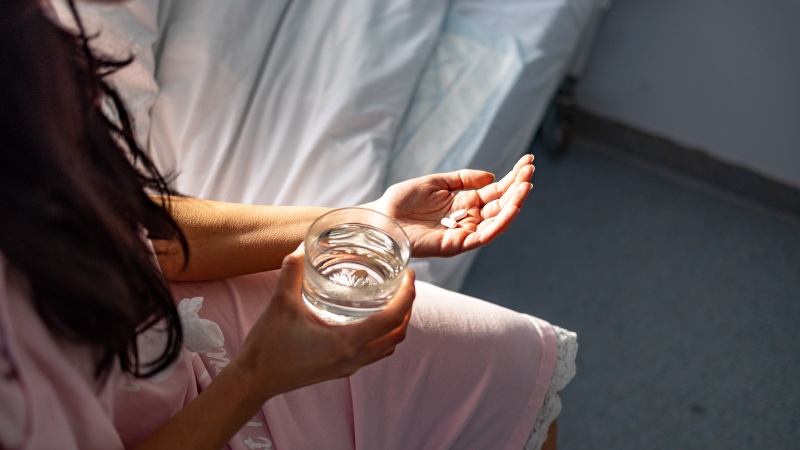Period pain is a regular monthly occurrence and can feel different from person to person. There are various tips and medicines available to reduce its intensity.
Period pain is annoying and sometimes downright terrible. Even though it happens every month, it can still be challenging to get used to the pain. You need to adopt various tactics to manage the pain. Some women use heating pads or patches, while others find relief in sipping hot tea and soups. Notably, there are other options available for this recurring pain, which include medicines.

There are various medicines available over-the-counter at pharmacy shops. Meftal-Spas, Naprosyn and Brufen are some of them. This blog will help you understand the best medications to ease painful periods.
What is a Period?
A period is a monthly menstrual cycle in which a woman bleeds. The process starts when the eggs released every month aren’t fertilised. The uterine lining build-up for pregnancy is then pushed out, resulting in bleeding. This process is accompanied by discomfort, such as cramping or pain.
Which Are the Best Five Medicines for Period Pain?
When it comes to period pain, painkillers that target the prostaglandin hormone are the best. Prostaglandin hormones are responsible for uterine contractions during menstruation, and their levels can affect the intensity of the pain. The higher the prostaglandins, the more pain you will feel. Some women also feel more pain than usual. Such cases should be consulted with a doctor. They can help you determine any underlying health condition that may cause this. One such condition is endometriosis.
These are the medicines you can take for period pain. However, please consult your doctor before taking them.
- Meftal Spas
This medicine is suitable for providing relief from menstrual pain and cramps. Meftal-Spas combines Dicyclomine hydrochloride and Mefenamic acid, which relax the muscles in the stomach and gut. It also stops sudden muscle contractions, reducing your muscle cramps.
- Naprosyn
Naprosyn (naproxen) is a nonsteroidal anti-inflammatory drug (NSAID) that reduces pain. This medicine works best if you take it as soon as your period starts or 48 hours before. Always take this medicine with food, and swallow it with a full glass of water.
- Disprin
Disprin contains aspirin, which comes under the group of NSAIDs. It is a pain killer and can effectively treat period pain. The medicine blocks prostaglandins that cause you terrible pain. The recommended dosage depends on your symptoms. Use this medicine for the duration as prescribed by your doctor.
- Brufen
Brufen 600 (ibuprofen) is another NSAID that relieves period pain. It blocks enzymes, causing you pain and discomfort. After taking the medication, your body feels less tension. The recommended dosage depends on your symptoms. Use this medicine for the duration as prescribed by your doctor.
- Crocin Pain Relief
Crocin tablet belongs to the class of analgesic medication. It contains Paracetamol and Caffeine that block chemical messengers in the brain that tell us we have pain. This medicine can quickly treat your period pain. You can take it with or without food. Do not chew, crush or break it. Please take it as a whole with a glass of water.
Tips to Ease Period Pain Before Taking Medicines
You can also follow these tips to reduce period pain:
- Take a warm shower to loosen your muscles.
- Use a heating pad or hot water bottle on your abdomen to soothe the pain.
- Do exercises like yoga or gentle workouts.
- Drink hot soups or liquids to stay hydrated.
- Avoid alcohol or caffeine before or during your menstrual cycle. They make your cramping worse.
- Avoid stress as it tightens your muscles, leading to cramping.
In conclusion, painkillers, such as Meftal-Spas, Brufen, and Naprosyn, are excellent for reducing period pain. However, please consult with a doctor before taking them. You can also try sipping hot water or using heating pads to relieve pain. And, if your pain is not reduced, then there could be an underlying health condition. You should seek medical attention for this.
Disclaimer: The views, suggestions, and opinions expressed here are the sole responsibility of the experts. No Open Headline journalist was involved in the writing and production of this article.
